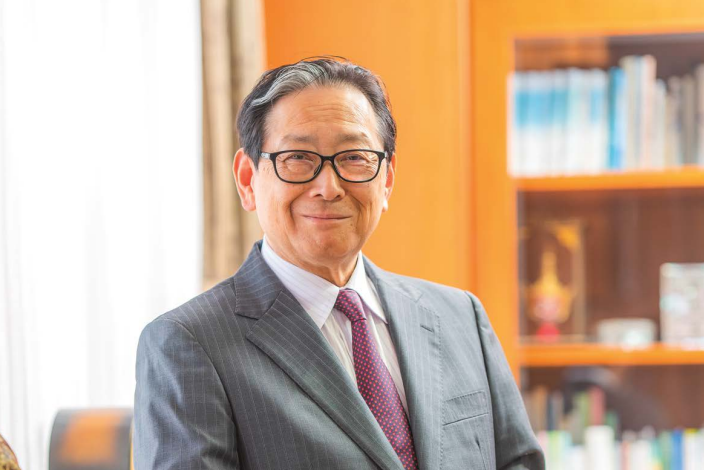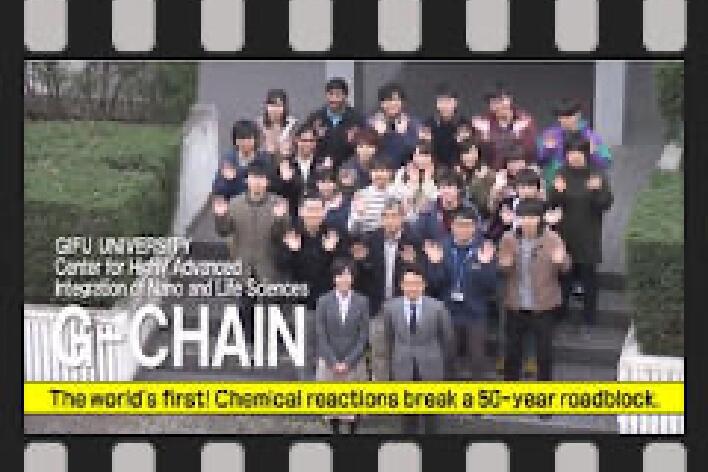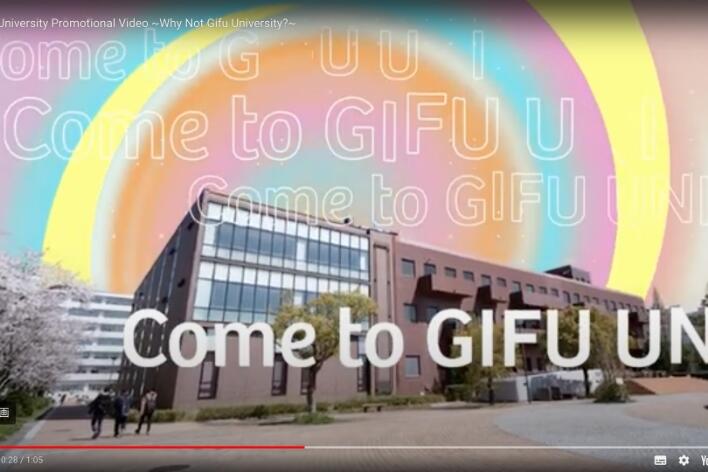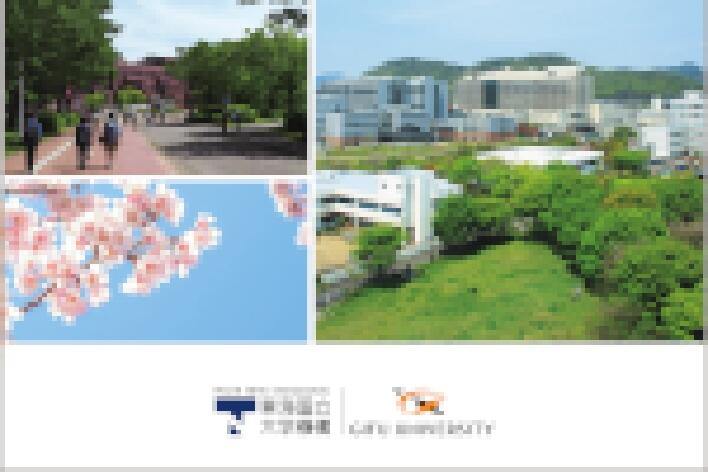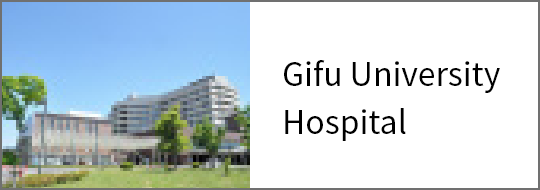President's Message
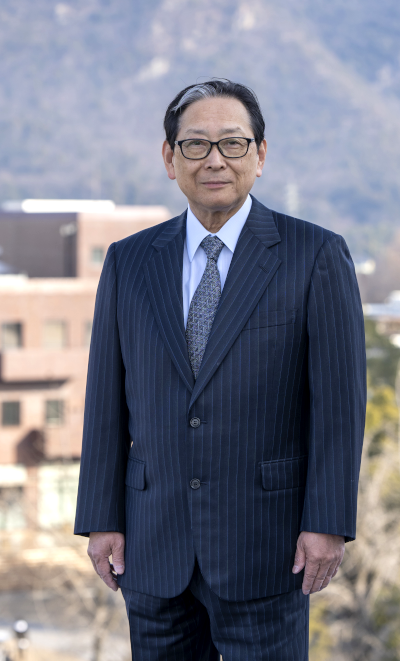
Thank you most sincerely for visiting the official website of Gifu University. It has been my profound honor and privilege to serve as President of Gifu University over the past three years. In this message, I wish to share with you an overview of the university's current endeavors and our aspirations for the future.
In April 2020, Gifu University and Nagoya University undertook a strategic integration of their management systems, culminating in the joint establishment of the Tokai National Higher Education and Research System (THERS). This initiative represents a pioneering model for national university corporations in Japan, with its principal aim being to accelerate reform and foster progressive development across higher education and research domains. Gifu University embraces the mission of THERS: "Make New Standards for the Public." Guided by our own educational philosophy - "Learning, Exploring, and Contributing"- we have articulated a vision to serve as a central hub for regional revitalization. This vision is pursued through the strategic advancement of regional co-creation, distinctive research, innovation, and education. To realize this aspiration, we have devised a comprehensive strategy that aligns with both our institutional mission and the overarching objectives of the university system.
THERS has significantly enhanced operational efficiency across several critical domains, including governance, crisis management, human resources, financial systems, and startup support. It actively fosters the following six research hubs that leverage the complementary strengths of both Gifu University and Nagoya University:
- Institute for Glyco-core Research (iGCORE)
- Aerospace Research and Education Hub (AREH)
- Center for Research, Education, and Development for Healthcare Life Design (C-REX)
- Center for One Medicine Innovative Translational Research (COMIT)
- Center for Integrated Sciences of Low Temperature Plasma Core Research, and
- Quantum-Based Frontier Research Hub for Industry Development (Q-BReD)
These hubs are designed to generate synergistic outcomes by integrating the research strengths of both universities, thereby fostering sustained growth and innovation.
Moreover, we remain steadfast in our commitment to advancing shared foundational initiatives, including the Academic Central ー a command center for educational excellence - the Digital University Initiative, and our DEIB1) Declaration, all of which serve as pillars for ongoing reform and development.
In alignment with THERS' value creation model, T-PRACTISS2), Gifu University has harnessed the collective strength of its faculties, graduate schools, and departments to advance the "MLIE Concept" - Migration, Laboratory, Innovation, and Education.
This comprehensive strategy is centered on five key pillars: the creation of businesses and community-building, product manufacturing, food manufacturing, the development of new medical systems, and human resource cultivation.
Over the past three years, we have established a robust foundation for future advancement, significantly propelled by the strong momentum generated through the acquisition of eight support initiatives under the Cabinet Office's "Comprehensive Promotion Package for Regional Core and Distinctive Research Universities."
Gifu University has identified three strategic domains in which its core strengths can be most effectively leveraged - Life Sciences, Manufacturing, and Environment & Energy - all grounded in a foundation of integrated, interdisciplinary knowledge. Our initiatives are guided by four foundational pillars: Education and Human Resource Development, Research and Value Creation, Community and Industry Collaboration, and International Engagement.
In the realm of education and human resource development, Gifu University stays committed to cultivating professionals endowed with extensive knowledge, unwavering ethical standards, and advanced problem-solving capabilities. We actively contribute to regional advancement by delivering high-quality, globally competitive education - including innovative doctoral programs and expanded opportunities for international student enrollment. In the current academic year, Gifu University has successfully expanded enrollment in its undergraduate and master's programs within information-related disciplines. Our doctoral students have begun receiving support through the Japan Science and Technology Agency's (JST) "Support for Pioneering Research Initiated by the Next Generation" (SPRING) initiative, which offers comprehensive financial assistance covering tuition, living expenses, and research activities.
Furthermore, Gifu University has advanced its institutional reforms by inaugurating a graduate school within the School of Social System Management, commencing in the 2025 academic year, and by undertaking a comprehensive reorganization of academic programs within the Faculty of Applied Biological Sciences.
As part of the Gifu Region Human Resource Development Program - Gifu University's adaptation of Supereminent Program for Activating Regional Collaboration (SPARC) set up by the Ministry of Education, Culture, Sports, Science and Technology (MEXT), aimed at establishing academic infrastructure for regional revitalization - Gifu University was officially designated as a University Collaboration Promotion Corporation by the Government of Japan in March 2024. This designation enables us to offer joint academic programs in partnership with Chubu Gakuin University and Gifu City Women's College, thereby advancing educational reform through inter-university collaboration. We anticipate that additional institutions will join this initiative in the near future, further strengthening our collective impact.
In addition, our collaborative initiatives between high schools and the university - such as the Space Engineering Workshop and the Habataki Project, which empowers female students to pursue studies in the sciences - have yielded remarkable success.
In the domain of research and value creation, Gifu University has made notable strides in the life sciences. At iGCORE, cutting-edge glycan research is advancing at a remarkable pace, positioning the university at the forefront of this emerging field.
Meanwhile, COMIT - a pioneering research institution born from interdisciplinary collaboration among medicine, pharmaceutical sciences, veterinary sciences, and engineering - is accelerating the development of innovative drug discovery seeds with transformative potential.
Glycan research at Gifu University has evolved from the trailblazing efforts of a single researcher in the 1970s into a nationally significant scientific endeavor. Over the decades, this seed of innovation has been carefully cultivated within the university and further enriched through synergistic collaboration with Nagoya University's advanced research capabilities. Today, it stands as a globally leading field, marked by promising breakthroughs such as the international standardization of glycan measurement and novel insights into the mechanisms of dementia.
At COMIT, substantial progress is being made following its selection for the Ministry of Education, Culture, Sports, Science and Technology's (MEXT) Subsidy for Promoting Management Reform in National Universities. A major milestone is the completion of a state-of-the-art integrated non-clinical research facility for medicine, veterinary sciences, and pharmaceutical sciences in April 2025. This facility, funded through the THERS Commons Bond3), is expected to significantly accelerate the center's research endeavors and enhance interdisciplinary collaboration. Furthermore, under the auspices of the Fusion Oriented Research for Disruptive Science and Technology (FOREST) program administered by JST, a total of seven researchers in the life sciences - including two selected in FY2023 - have been awarded support. This distinction places Gifu University among the leading institutions in the region in terms of research excellence and innovation capacity.
In the field of manufacturing, Gifu University has made remarkable progress through strategic collaboration with local governments and regional industries. Japan's first Intelligent Production Technology Research & Development Center for Aerospace (IPTeCA), established through these partnerships, was selected in FY2024 for inclusion in the premier research programs of the New Energy and Industrial Technology Development Organization (NEDO), in cooperation with Boeing Japan, Mitsubishi Heavy Industries, Ltd., Kawasaki Heavy Industries, Ltd., and SUBARU Corporation.
In addition, THERS and the four companies jointly established the Consortium for Sustainable Aircraft Production (CSAP), which is expected to address shared challenges within the aircraft manufacturing sector and contribute to enhancing its long-term sustainability.
Moreover, Gifu University is actively advancing initiatives aimed at translating research outcomes into societal applications - including innovations such as smart die casting and next-generation carbon fibers - thereby contributing to the advancement of regional manufacturing industries. Notable achievements include the establishment of a sustainable technology innovation hub for Seki cutlery in Seki City, Gifu Prefecture, and the launch of new manufacturing management course within the School of Social System Management in April 2025.
In the field of environment and energy, Gifu University established the Center for Environmental and Societal Sustainability (CENSS) in April 2024, with the aim of addressing climate change and contributing to the realization of carbon neutrality.
With support from JST and NEDO, we are advancing collaborative research with Nagoya University in areas such as smart energy management utilizing hydrogen and ammonia, as well as plasma-based technologies.
In the realm of community and industry collaboration, Gifu University has significantly expanded its partnerships with local governments. By October 2024, the university had entered into comprehensive agreements encompassing education, research, and industry-academia collaboration with the Gifu Prefectural Government and all 42 municipalities within the prefecture. This collective effort has led to the establishment of an "All-Gifu" platform, designed to elevate regional collaboration to the next level of growth and impact. With regard to industry-academia collaboration, Gifu University is actively fostering innovation at the newly inaugurated Tokai Open Innovation Complex Gifu Site - affectionately known as OKB Gifu University Plaza - which commenced operations in February 2024. Our entrepreneurship education initiatives have also yielded outstanding results, with members of Gifu University's student startup club receiving multiple accolades at national business competitions, including the prestigious MEXT Minister's Award.
In the sphere of international engagement, Gifu University is making concerted efforts to promote the global circulation of knowledge. Building upon the success of our Joint Degree Programs (JDP) with the Indian Institute of Technology Guwahati and the National University of Malaysia, we are actively expanding our international partnerships with esteemed institutions such as the University of South Florida (USA), the University of Lille (France), Vytautas Magnus University, and Kaunas University of Technology (Lithuania). Furthermore, new collaborative initiatives have been launched with Samarkand State Medical University in Uzbekistan, and we are advancing joint efforts in energy and climate change with the International University of Rabat in Morocco.
For Japan to assume a more prominent role in the international community, to lead global progress, and to realize a society in which all individuals can live in peace and prosperity, the power of science, technology, and innovation is indispensable.
Achieving this vision requires the strengthening of collaborative frameworks between academia - particularly universities - local governments, and industry, while simultaneously promoting research and the societal implementation of its outcomes to effectively address the evolving needs of society. Gifu University is fully committed to evolving into a world-leading institution in these efforts. Our mission is not only to drive innovation and contribute to regional revitalization, but also to advance the frontiers of fundamental research and cultivate the next generation of global talent. Together with our faculty, staff, students, and all stakeholders, we will continue to move forward in pursuit of even greater success and enduring achievements.
YOSHIDA Kazuhiro
President of Gifu University
1) Diversity, Equity, Inclusion, and Belonging
2) Plan to Renovate Area Chubu into Tech Innovation Smart Society
3) A means of raising funds to address social issues and achieve well-being
- President's Address: AY 2025 Entrance Ceremony for Graduate School Students [2025.04.07]
- President's Address: AY 2025 Entrance Ceremony [2025.04.07]
- President's Address at the 73rd Commencement Ceremony for AY 2024 [2025.03.25]
- President's Address for AY 2024 Commencement Ceremony for Gifu University Graduate Schools [2025.03.25]
- President's New Year's Greetings for 2025 [2025.01.06]
- President's Address: AY 2024 Entrance Ceremony for Graduate School Students [2024.04.07]
- President's Address: AY 2024 Entrance Ceremony [2024.04.07]
- President's Address at the 72nd Commencement Ceremony for AY 2023 [2024.03.25]
- President's New Year's Greetings for 2024 [2024.01.09]
- President's Address: AY 2023 Entrance Ceremony for Graduate School Students [2023.04.07]
- President's Address: AY 2023 Entrance Ceremony [2023.04.07]
- President's Address at the 71st Commencement Ceremony [2023.03.25]
- President's Address for AY 2022 Commencement Ceremony for Gifu University Graduate Schools [2023.03.25]
- Gifu University's visions and strategies: Endeavors to become Japan's best academic hub for the community
- President's New Year's Greetings for 2023 [2023.01.04]
- President's Address AY 2022 Entrance Ceremony [2022.04.07]
- President's Address AY 2022 Entrance Ceremony for Graduate School Students [2022.04.07]
